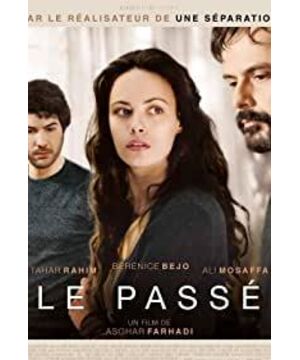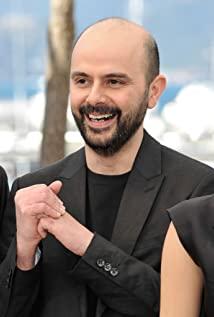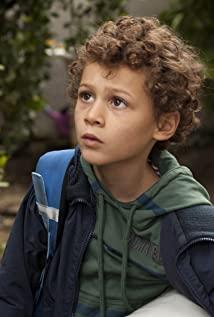Iranian director Asghar Farhadi is a writer-director who has quickly become popular in the past ten years and has established a position in the international film industry. Thanks to the Berlin Film Festival, his works can be well known to a wide audience. . From "About Yili", which won the Silver Bear's best director, to "A Farewell", which won the Golden Bear Award, his journey in Berlin went quite smoothly. Perhaps in view of this, Cannes, the first of the three major European film festivals, naturally wants to snatch the red man. After "A Farewell" became popular in the global film industry, France took the initiative to throw an olive branch to Farhadi, and naturally the non-native language film "The Past" was born, and the film was naturally selected for the 2013 Cannes competition. unit. However, Farhadi's first shot in Europe was less than satisfactory, and the French-language film only won the best actress award that year.
The quality of this "Past" is a lot worse than "A Separation", which is obviously due to Farhadi's incompatibility due to filming in France. The narrative mode is exactly the same as "A Separation". It is still the theme of emotional ethics, and it involves two families, one of which is also dealing with divorce. However, this is not a story that happened in Iran after all. It is difficult to transplant the real problems of class, religion, law and other real problems in Iran into the French background, and these shining points that can produce tricks have completely disappeared. Farhadi, of course, can't use his previous trump card, where the characters are stuck in a dilemma to advance the drama and create a gripping rhythm.
Therefore, this French film only focuses on family and marriage, which is more detailed and cumbersome, and the sense of substitution is not strong. It is unimaginable in a conservative country like Iran to have multiple ex-husbands like the heroine, and live together with the new lover without going through the divorce procedures with the ex-husband, but it is quite common to Europeans. Although this woman with an independent and arrogant personality and a complicated and chaotic marriage history is an advantage in narrative suspense, the repeated and noisy quarrel scenes seem to be overdone and cannot make the audience understand her role more rationally. Having said that, this is a once-in-a-lifetime opportunity for actresses who like to show off their acting skills. Maybe this is also a weight for Berenice Bejo to win the Queen of Cannes. After all, this dramatic and explosive performance is very snatch. eyeball.
This tendency to "go too far" in the script also appeared in the second half of the plot. The eldest daughter wrote an email to "report" her mother's relationship, and the "fight" between the laundry worker and the original wife is hard to imagine that it is authentic. French films, it is suspected that Farhadi is deeply influenced by American dramas, especially the role of the eldest daughter is too much like a model jumped out of American youth films, not like the temperament of European art films at all.
This kind of character creation is a bit like Wong Kar-wai's complete westernization in the failed "Blueberry Night". However, Farhadi's superb screenwriting skills are enough to hide these dazzling shortcomings. The script is definitely the biggest in the film. highlights. A couple going through the divorce procedures involves their own past events, and finally leads to the separation of life and death between another couple. The complex marriage history of the heroine and the affiliation of several children are all hidden in the dialogues of the characters, and they are revealed as the plot unfolds.
Several indoor scenes are well-planned, depicting the tense relationship and atmosphere between characters in a small space. There is a scene where the ex-husband and the current boyfriend meet for the first time in the kitchen for breakfast, which is a very clear example. The method of hiding the key to the narrative is also similar to "A Parting". In the first half of the plot of the family quarrel, the suspense of a vegetative wife was thrown out first, and the second half of the plot of the daughter running away from home also tightly held this key, making the plot gradually Turned to the suspenseful undertones of the type of plot. The final reveal was a bit weakened, but fortunately there was a scene where the vegetative wife made her final appearance. This scene reminds me of Almodovar's "Something About Her" for no reason, which is a near-perfect ending for the films I've seen in recent years.
View more about The Past reviews











